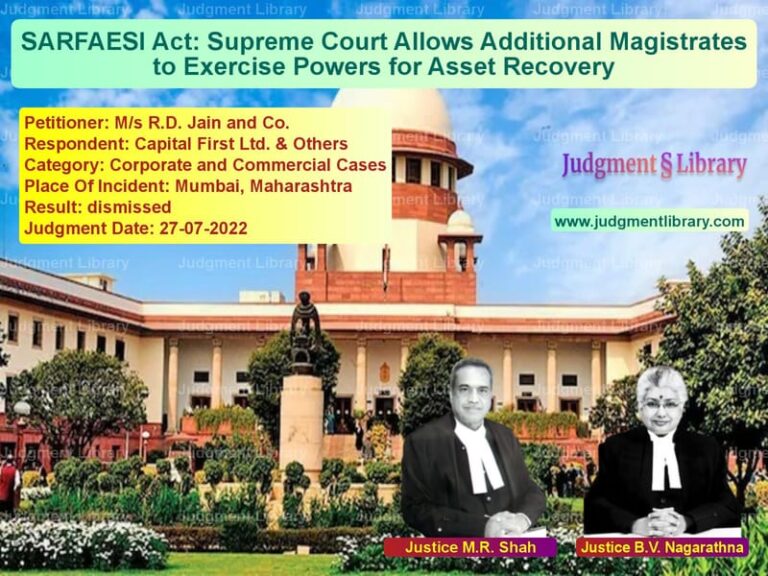Court Urges State Governments to Address Overpricing in Private Hospitals
In a recent landmark decision, the Supreme Court of India addressed the issue of overpricing in private hospitals and their alleged practice of compelling patients to buy medicines and medical supplies exclusively from hospital pharmacies at inflated rates. The ruling came in response to a public interest litigation (PIL) filed by Siddharth Dalmia and others, which raised concerns about the financial burden placed on patients due to these hospital policies.
Background of the Case
The case was initiated under Article 32 of the Constitution, invoking fundamental rights related to health and fair treatment. The petitioners contended that private hospitals in India were systematically exploiting patients by mandating the purchase of medicines, implants, and consumables from hospital-owned or affiliated pharmacies at exorbitant prices, often well above the market rate.
The petitioners also pointed out that government authorities had failed to regulate such practices, allowing private hospitals to impose unjust financial burdens on patients. They sought judicial intervention to compel private hospitals to disclose medicine prices transparently and allow patients to buy from external pharmacies.
Petitioners’ Arguments
The petitioners, represented by their legal counsel, presented the following arguments:
- Private hospitals enforce a monopoly by requiring patients to purchase medicines from their own pharmacies, often at inflated rates.
- This practice violates the right to fair pricing in healthcare, infringing upon Article 21 (Right to Life) of the Indian Constitution.
- There is a lack of regulatory oversight, allowing hospitals to take undue advantage of patients’ vulnerability.
- The state and central governments have failed to implement policies preventing such practices, despite the existence of price control mechanisms like the Drug Price Control Order, 2013.
The petitioners’ counsel argued, “Hospitals should be centers of healing, not financial exploitation. The State must step in to ensure patients are not forced into economic distress while seeking essential healthcare.”
Respondents’ Arguments
The Union of India and various state governments defended their stance, asserting:
- The government has already implemented price controls on essential drugs through the National Pharmaceutical Pricing Authority (NPPA).
- Jan Aushadhi Kendras and Amrit Drug Stores have been set up across the country to provide medicines at subsidized rates.
- Government hospitals do not impose such restrictions, and private hospitals function independently under commercial laws.
- Healthcare regulations fall under the jurisdiction of state governments, making a centralized directive impractical.
The government’s legal representative stated, “There is no legal compulsion on patients to buy medicines from hospital pharmacies. However, regulation of private hospital pricing falls under state jurisdiction, and appropriate policies should be framed accordingly.”
Read also: https://judgmentlibrary.com/supreme-court-dismisses-pil-on-reservation-policy-in-medical-admissions/
Supreme Court’s Observations
The Supreme Court, comprising Justices Surya Kant and Nongmeikapam Kotiswar Singh, acknowledged the concerns raised by the petitioners but refrained from issuing a blanket directive against private hospitals. Instead, the Court urged state governments to take proactive measures to regulate unfair pricing practices.
The Court observed:
“While the right to access healthcare is fundamental, the operational freedom of private hospitals cannot be curtailed through judicial intervention alone. Policy measures by state governments are necessary to balance affordability with private sector participation in healthcare.”
The Court also referenced the importance of maintaining a competitive and transparent healthcare market, emphasizing that stringent policies should not discourage private investment in the health sector.
Key Legal Takeaways
- Patient Rights in Healthcare: The ruling reinforces the principle that patients should not be financially exploited during medical treatment.
- Regulatory Gaps: The judgment highlights the need for stronger state-level regulations to ensure price transparency in private hospitals.
- Balance Between Regulation and Private Healthcare Growth: The ruling acknowledges the necessity of private hospitals while advocating for better consumer protection.
Final Judgment
The Supreme Court disposed of the petition with a direction to all state governments to review existing policies and consider appropriate regulatory measures to prevent the exploitation of patients by private hospitals.
“We urge state governments to frame policies ensuring that private hospitals maintain transparency in medical pricing while ensuring continued growth of the private healthcare sector.”
Petitioner Name: Siddharth Dalmia & Anr..Respondent Name: Union of India & Others.Judgment By: Justice Surya Kant, Justice Nongmeikapam Kotiswar Singh.Place Of Incident: India (National Jurisdiction).Judgment Date: 04-03-2025.
Don’t miss out on the full details! Download the complete judgment in PDF format below and gain valuable insights instantly!
Download Judgment: siddharth-dalmia-&-a-vs-union-of-india-&-oth-supreme-court-of-india-judgment-dated-04-03-2025.pdf
Directly Download Judgment: Directly download this Judgment
See all petitions in Fundamental Rights
See all petitions in Public Interest Litigation
See all petitions in Judgment by Surya Kant
See all petitions in Judgment by N. Kotiswar Singh
See all petitions in dismissed
See all petitions in supreme court of India judgments March 2025
See all petitions in 2025 judgments
See all posts in Constitutional Cases Category
See all allowed petitions in Constitutional Cases Category
See all Dismissed petitions in Constitutional Cases Category
See all partially allowed petitions in Constitutional Cases Category







